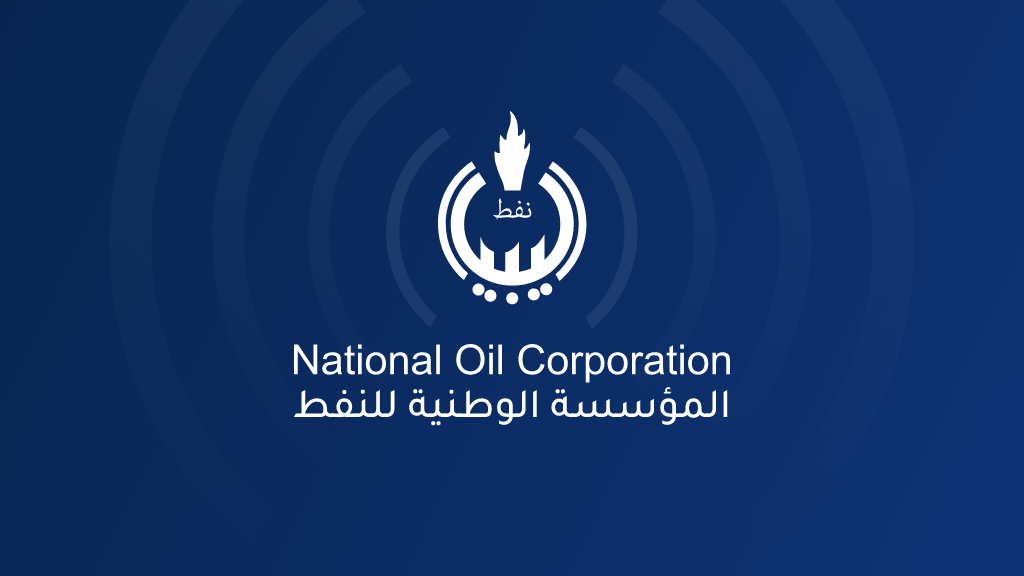News
Categories
Archive
| News
Launching new projects to advance the Libyan oil sector, the renewal of out of service oil fields and getting the best benefit from renewable energies, these were the most important but just a few of the topics discussed at the Libya Investment Forum
On Wednesday, June 9, 2021, the Chairman of the National Oil Corporation (NOC), Eng. Mustafa Sanalla, participated from his office at the headquarters of the NOC in Tripoli, through the closed circle, in the works of the Libya Investment Forum. The forum which was organized by the Libyan British Business Council ( LBBC), the Petroleum Economist, representatives of international oil and services companies, law firms and many other international organizations.
During the forum, many questions relating to the oil industry in Libya were directed to Eng. Mustafa Sanalla, and they were answered in full, along with an explanation of developments in the Libyan oil and gas sector from past years until present.
The departments of exploration, development, maintenance and projects also presented, visual presentations regarding the promising future hopes for Libya in the sector, and their positive impact on the national economy.
During his speech, Eng. Mustafa Sanalla explained that the Libyan oil and gas sector has faced many setbacks in the last few years due to armed conflicts and disorder. This had led to the closure of many oil and gas fields and export terminals. This resulted in an extreme reduction of our daily production for prolonged periods of time.
Regarding this issue, Eng. Mustafa Sanalla was quoted as saying “Our crude oil production went down repeatedly to as low as 100 thousand b/d, 7% of our regular production capacity. The prolonged shutdown of our production and export facilities caused excessive corrosion and damage to equipment, storage tanks and pipelines consequently limiting our capacity when these facilities were gradually put back online. Furthermore, a number of oil fields (Ghani, Dahra, Mabruk, Zella,) were vandalized and virtually destroyed by raging intruders. These fields need an extensive rehabilitation to bring them back online. The NOC and its affiliated companies and partners were always up to the challenge and we could repeatedly bring back our production to more than 1 million b/d and I take here the opportunity to commend the courage and sacrifices of our champions in all operating sites.”.
Eng. Mustafa Sanalla also spoke about most of the challenges facing the Libyan oil sector, and explained that the NOC has plans to launch a number of projects that will significantly contribute to achieving the NOC’s strategic goals for the future advancement and development of the sector at all levels. Eng. Sanalla noted that the NOC’s long term plans for oil production would be for it to reach rates of 2.1 million barrels per day, and 4.1 billion cubic feet per day of gas in the onshore and offshore fields.
During his speech, Eng. Sanalla also touched on the plans of the National Oil Corporation to develop discovered gas fields to meet the increasing demand for gas and extract liquid fuels currently used for power generation and direct them for export. In addition, the NOC has plans to move forward with field development plans for ongoing engineering studies for a number of gas discoveries both onshore and offshore including, Hamada NC7, Atshan NC200, and the two installations A & E in Zone D (the offshore blocks), the Al-Buri gas utilization project (GUP), Aroos Al-Bahar gas field, and the use of gas (Al-Serir – Msela, empty second stage).
Eng. Sanalla indicated that the NOC is keen to benefit from renewable energies to meet part of the energy needed to operate oil facilities, by taking advantage of the great developments in renewable technologies. He also referred to the NOC’s keenness to reduce carbon emissions.
Eng. Sanalla concluded his speech by saying: “Oil and gas revenues currently represent 95% of Libya’s export earnings. The NOC is making great efforts to ensure that the country’s oil & gas resources are wisely and sustainably produced, monetized and turned into the badly needed income for the development of the country and for improving the welfare of the Libyan citizens. Rebuilding, expansion and modernization of the damaged infrastructure.
.
The large projects involved in this will require huge investment and would require the involvement and assistance of foreign investors and service providers. We understand that any successful and long-lasting partnership will have to be based on a win-win relationship , we also understand that this can only happen in an environment of security and stability, and we are very optimistic about the latest political developments and formation of a Government of National Unity. We hope for a better future”.
Eng. Sanalla added, “Finally, the future of the oil and gas sector in Libya is undoubtedly bright and promising and offers excellent opportunities for foreign investors and service providers. your attendance here today only feeds our optimism.
.”
The National Oil Corporation



